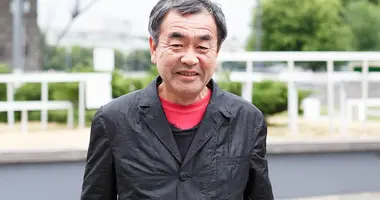Japan's most beautiful Zen gardens
- Published on : 17/06/2024
- by : J.R.
- Youtube
The Zen garden, a true symbol of Japanese culture, fascinates the world with its pure beauty and profound meaning. These spaces of contemplation and meditation, called "karesansui" or "dry gardens" in Japan, invite reflection and serenity. Let's discover together the origins of this ancestral art, its unique characteristics and the most beautiful examples to visit during a stay in the Land of the Rising Sun. From the emblematic gardens of Kyoto to the hidden treasures of Fukuoka, let's embark on a Zen journey through the Japanese archipelago.
What is a Japanese Zen garden?
A Japanese Zen garden, or karesansui, is a symbolic, minimalist representation of nature. Unlike Western gardens, it is characterized by the absence of water and flowering plants. Its main components are :
- Finely raked sand or gravel, symbolizing water or the ocean - stones and rocks, representing mountains or islands - moss and a few evergreen shrubs, used sparingly - geometric patterns raked into the sand
The Zen garden aims to eliminate all superfluity, in line with Zen principles, to provide a space conducive to meditation and contemplation. Its pure, black-and-white design is inspired by monochrome painting of the Song period, and invites visitors to deep introspection.
Discover the gardens with Japan Experience
The origins and significance of dry gardens
The history of Zen gardens dates back to the 15th century, in the heart of Zen Buddhist temples and monasteries in Japan. They were created in the context of Zen in Japan, a school of Japanese Buddhism that advocates meditation and detachment from material things.
These gardens are conceived as a metaphor for the universe, where each element takes on a profound meaning:
- Raked sand represents the ocean or rivers - Rocks symbolize mountains or islands - Traced patterns evoke waves and currents
One of the most emblematic dry gardens, whose creator remains unknown, is that of Kyoto's Ryoan-ji temple. Its mysterious composition has intrigued visitors and specialists alike for centuries.
The key elements of a Zen garden
To create the unique atmosphere of a Zen garden, there are several essential elements:
1. Sand or gravel: Carefully raked, it forms patterns evocative of water and its movements.
2. Stones and rocks: precisely arranged, they represent landscape features such as mountains or islands.
3. Minimalist vegetation: A few pruned shrubs, moss or low-growing plants are used sparingly.
4. Borders: These delimit the space and create a frame for contemplation.
5. Accessories: Stone lanterns, bridges or water basins complete the composition.
The arrangement of these elements follows precise rules, such as the use of odd groups (3, 5, 7) for stones, and aims to create an asymmetrical balance characteristic of Japanese aesthetics.
The most beautiful Zen gardens to visit in Kyoto
Kyoto, Japan's former imperial capital, is home to some of the country's finest Zen gardens. Here's a selection of the must-sees:
1. The Ryoan-ji garden : considered one of the most beautiful and emblematic, this 200 m² garden consists of 15 stones laid out on a bed of white gravel. Its mystery lies in the fact that it is impossible to see all the stones simultaneously, whatever the viewer's position.
2.Ginkaku-ji dry garden : Also known as the Silver Pavilion, this temple houses a magnificent dry garden. What makes it special? A sand embankment representing Mount Fuji, a rarity in Zen garden art.
3. The three gardens of Daitoku-ji: This Zen temple complex is home to several remarkable gardens, including the Daisen-in. Classified as a Japanese National Treasure, this stone garden dating from the late Muromachi period (1336-1576) is divided into four parts, each symbolizing a stage in life.
These gardens offer a unique meditative experience and are a must on any visit to Kyoto's Zen temples.
Discovering iconic Zen gardens outside Kyoto
Although Kyoto is renowned for its Zen gardens, other regions of Japan also harbor treasures worth discovering:
1. Banryutei Garden at Kongobu-ji on Mount Koya (Kansai): created in 1984, this is Japan's largest dry garden, with over 2,000 m² and 140 stones. The rocks represent dragons emerging from the clouds, protectors of the Kongobu-ji temple .
2. Komyozenji garden in Fukuoka (Kyushu): The only example of a dry garden on the island of Kyushu, it is distinguished by its two-part composition and the subtle presence of trees, which is rare in traditional Zen gardens.
3. Adachi Art Museum Garden (Shimane Prefecture): Although more modern, this garden designed as a "tableau vivant" has been voted best garden in Japan every year since 2003 by the Journal of Japanese Gardening.
These gardens, located off the beaten track, offer a different perspective on the art of Zen gardening and are well worth a visit for lovers of authenticity.
Tips for making the most of a visit to a Zen garden
To make the most of your visit to a Japanese Zen garden, here are a few tips:
1. Choose the right time: Choose the first opening hours on weekdays to avoid the crowds and enjoy the peace and quiet.
2. Take your time: A Zen garden is best discovered slowly. Sit back and contemplate the landscape from different angles.
3. Observe the details: Pay attention to the patterns in the sand, the arrangement of the stones and the symbiosis between the elements.
4. Respect silence: These gardens are places of meditation, so avoid noisy conversations.
5. Educate yourself: Read up on the history and symbolism of the garden before or after your visit to better understand its significance.
6. Be inspired: Use the experience to reflect and recharge your batteries.
By following these tips, you'll be able to fully appreciate the spiritual and aesthetic depth of these unique gardens.
The influence of Zen gardens on Japanese art and culture
The influence of Zen gardens extends far beyond their walls, deeply permeating Japanese art and culture:
1. Architecture: The principles of Zen garden simplicity and harmony have inspired traditional Japanese architecture, as seen in teahouses and ryokan.
2. Visual arts: The refined composition and use of negative space in Zen gardens have influenced Japanese painting, calligraphy and even photography.
3. Interior design: The concept of "ma" (empty space) and the minimalist aesthetic of Zen gardens can be found in contemporary Japanese interior design.
4. Life philosophy: The idea of finding beauty in simplicity and imperfection, embodied in Zen gardens, has given rise to the concept of "wabi-sabi", which permeates Japanese culture.
5. Floral art: Ikebana, the Japanese art of flower arranging, shares with Zen gardens a minimalist, symbolic approach to nature.
6. Meditation and well-being: Zen gardens popularized the practice of meditation and influenced modern approaches to mental well-being in Japan and around the world.
Zen gardens continue to inspire artists, designers and thinkers around the world, testifying to their timeless power to captivate the imagination and nourish the spirit.





























